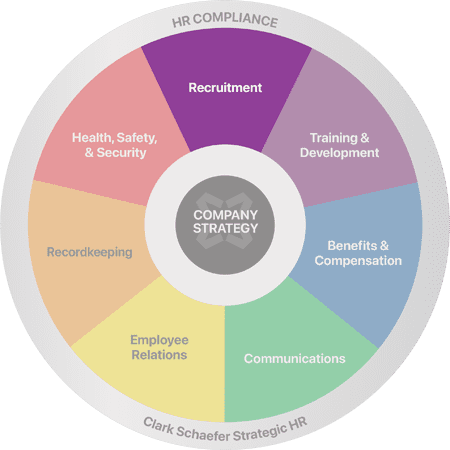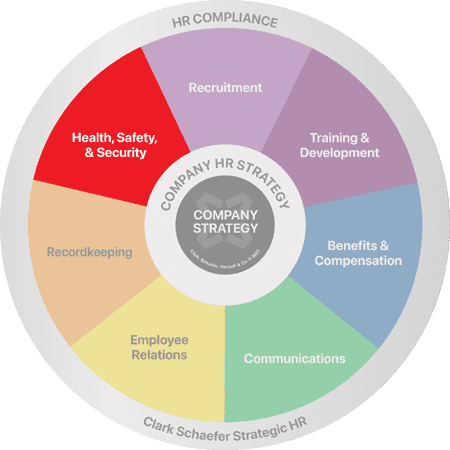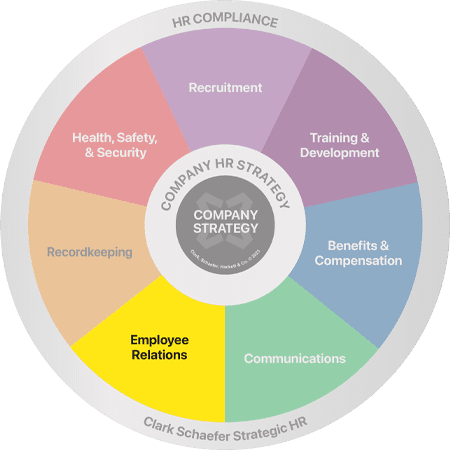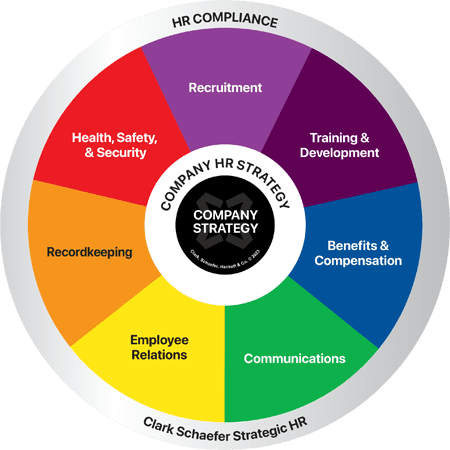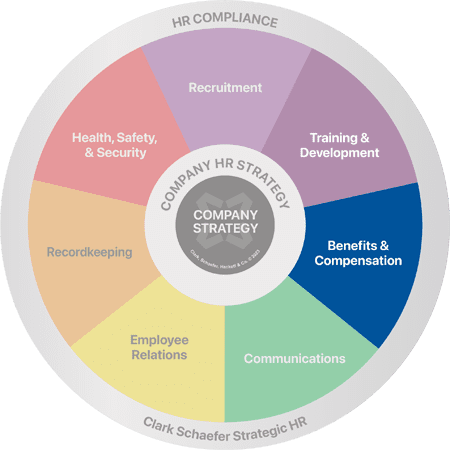What’s the Most Effective Way to Use Panel Interviews?
Last Updated on April 13, 2022 / Recruitment

HR Question:
As a retention and growth opportunity, we have decided to shift to panel interviews to engage our team members in the hiring process. What’s the most effective way to use panel interviews?
HR Answer:
Panel interviews, when planned properly, can greatly exceed the effectiveness of single interviewer methods.
Why Single Interviewer Methods Can Be Difficult
From the perspective of an interviewer, conducting an effective interview can be a challenging task. The interviewer must concentrate on asking good questions and listening to the candidate’s responses. At the same time, the interviewer has to formulate an appropriate follow-up question, monitor how much time is left, jot down interview notes and, most importantly, pay close attention to both verbal and non-verbal responses of the interviewee. These tasks altogether create distractions that cause an interviewer to miss important cues from the candidate.
Panel interviewing addresses the shortcomings of the single interviewer method. As the Society of Human Resources shares, panel interviews allow interviewers to get a broader picture of the candidate and their experience while observing the candidate’s verbal and non-verbal responses and taking good notes. From the candidate’s perspective, it can significantly reduce the amount of time that they must spend interviewing with the employer as compared to interviewing with several employees separately.
How to Build an Effective Interviewing Panel
The interview panel generally should consist of three to five members with one of those individuals playing the role of panel facilitator. Whenever possible, the panel should represent the diversity of your organization. Although the specific individuals selected to participate on an interview panel will most likely change based on the positions you are seeking to fill, once a panel is selected for a particular role, the members of that panel should stay consistent until the position is filled. Panel members should receive training on effective interviewing techniques and be briefed in advance regarding their role in meeting with the candidates.
Before each interview, the panel facilitator will be responsible for a few tasks, such as assigning questions to each panel member, establishing the expectations of the panel, briefing the panel on certain areas for more emphasis or depth of questioning depending on the candidate’s situation, as well as distributing the materials to be used by the panel — candidate resume, application, interview guide, job description, etc. Ideally, these materials should be provided ahead of time for each panel member to review in advance.
During the interview, the facilitator will introduce the candidate to the panel, monitor time and, after the candidate has departed, lead the evaluation and consensus rating of the candidate. Preferably, panel facilitators should have good leadership skills, interviewing experience, and consensus-building skills.
The “Flow” of an Effective Panel Interview
The best panel interviews follow a sequence that allows panel members to get the most information from the candidate. Effective panel interviews will naturally follow the same steps.
First, introductions are made by the main facilitator, who will also detail the process for the candidate. The facilitator should let the candidate know there will be time for their questions at the end, so the candidate can feel at ease.
Using the same interview guide, the facilitator and other panel members will take turns asking questions of the candidate. It’s important that other panel members remain silent and take note of the candidate’s responses when it isn’t their turn to allow the candidate to focus on responding to only one person, as well as to make sure they’ve accurately captured the candidate’s thoughts. Once the panel members’ and candidate’s questions are answered, the facilitator will tell the candidate what to expect next and will escort the candidate from the interview room.
Afterward, the facilitator will lead the discussion on the candidate’s responses, qualifications, and ratings for each area questioned during the interview. Panel members will discuss their ratings, point out the basis for their evaluations, compare their decisions, and support their observations. Finally, a consensus on next steps should be reached.
The Importance of Reducing Candidate Stress
The most effective interviews provide candidate responses that are candid and thorough. Candidate stress can inhibit straightforward responses and reduce the effectiveness of the interview. Therefore, a genuine attempt should be made to put the interviewee at ease. This can be done in several ways, such as:
- Giving the candidate enough warning that this will be a panel interview, along with background information on each panelist to help the candidate have a better idea of who they will be meeting with.
- Avoid seating panel members behind a massive table or facing the applicant as if it were an interrogation or a trial by jury.
- Make sure that each interviewer finishes asking all of their assigned questions before others ask follow-up questions. Without this, the candidate may feel interrogated rather than engaging in an open dialogue.
Special thanks to Terry Wilson, SPHR, SHRM-SCP, Senior HR Business Advisor for contributing to this edition of our HR Question of the Week!
Could you use some help in recruiting the best talent for your organization? Learn about our Recruitment Services, or better yet, Contact Us to find out how we can help.

